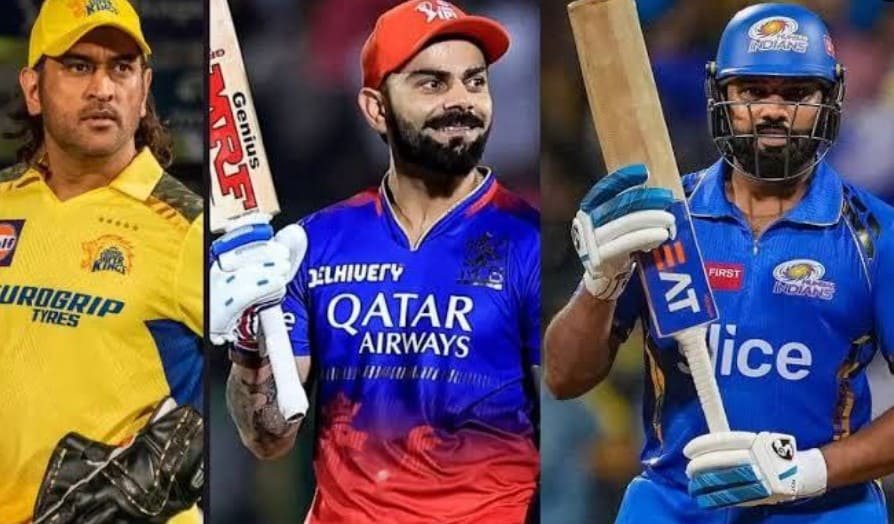India’s cricketing icons are facing an unexpected financial setback. With the government’s recent decision to ban real-money online gaming platforms, some of the country’s biggest stars—including Virat Kohli, Rohit Sharma, and MS Dhoni—are reportedly set to lose a combined ₹200 crore in endorsement deals.

The move, which has shaken both the gaming industry and cricketing ecosystem, is now being called a “financial earthquake” for India’s sporting economy.
Why Are Cricketers Losing So Much?
For years, fantasy sports and online gaming platforms like Dream11, MPL, My11Circle, and Winzo invested heavily in cricket sponsorships. They didn’t just sponsor tournaments and leagues—they also signed India’s top players as brand ambassadors.
- Virat Kohli was the face of MPL, earning close to ₹10–12 crore annually.
- Rohit Sharma featured prominently in Dream11 campaigns.
- MS Dhoni’s association with Winzo and Dream11 added crores to his income.
With the ban, these contracts are being terminated, leaving a massive dent in endorsement earnings. Emerging cricketers with smaller ₹1–2 crore deals are also set to lose out completely.thletes face multi-crore losses, newer faces with deals of around ₹1 crore each stand to lose their entire endorsement value.
The Bigger Picture: ₹150–200 Crore Annual Loss
Reports estimate that Indian cricketers collectively stand to lose ₹150–200 crore every year due to the collapse of gaming sponsorships. For some players, these deals made up 20–25% of their endorsement income, showing just how dependent the sports market had become on the gaming industry.
And it’s not just players—this ban has a ripple effect across the BCCI, IPL franchises, and domestic leagues.
BCCI & IPL Sponsorships Under Pressure
The impact of the gaming ban is already visible at the national level:
- Dream11, which held a ₹358 crore jersey sponsorship deal with the Indian cricket team, is in talks with BCCI to exit.
- IPL’s associate sponsor My11Circle contributed around ₹125 crore annually—now gone.
- Several IPL franchises, including KKR, LSG, and SRH, earned ₹10–20 crore each year through fantasy gaming tie-ups. All those deals will now vanish.
Without quick replacements, both BCCI and franchises risk a big revenue dip ahead of the Asia Cup 2025 and next year’s IPL.
Government’s Move and Industry Concerns
The Promotion and Regulation of Online Gaming Bill, 2025, passed earlier this month, bans all forms of money-based online gaming and associated advertising. Offenders face hefty fines and up to three years of jail time.
While the government views it as a step to curb addiction and illegal betting, gaming associations warn the blanket ban could:
- Slash ₹20,000 crore in annual tax revenue.
- Push users toward unregulated black-market apps.
- Impact over 500 gaming startups and thousands of jobs.
Clearly, the ripple effects go far beyond cricket.
Who Suffers the Most?
| Stakeholder | Estimated Loss | Impact Summary |
|---|---|---|
| Virat Kohli | ₹10–12 Cr/year | Loss of MPL and fantasy endorsements. |
| MS Dhoni | ₹7–8 Cr/year | End of Winzo & Dream11 deals. |
| Rohit Sharma | ₹6–7 Cr/year | Loss of Dream11 campaigns. |
| Other Players | ₹1–3 Cr/year | Small but significant endorsement wipeout. |
| BCCI | ₹358 Cr | Loss of Dream11 as team sponsor. |
| IPL Franchises | ₹10–20 Cr each | Hit on franchise-level fantasy gaming deals. |
In Short:
For cricket fans, this story goes beyond just numbers. Over the years, we’ve seen Dhoni, Kohli, and Rohit appear in countless gaming ads during IPL and international matches. That era is now officially over.
The bigger challenge lies ahead for the BCCI and franchises, who must urgently fill the sponsorship gap before the Asia Cup and IPL 2026. As for players, while their on-field earnings remain untouched, losing close to ₹200 crore collectively is a reminder of how volatile endorsement incomes can be.
One thing is certain—India’s online gaming ban hasn’t just changed the digital industry; it has also redrawn the economics of Indian cricket.








